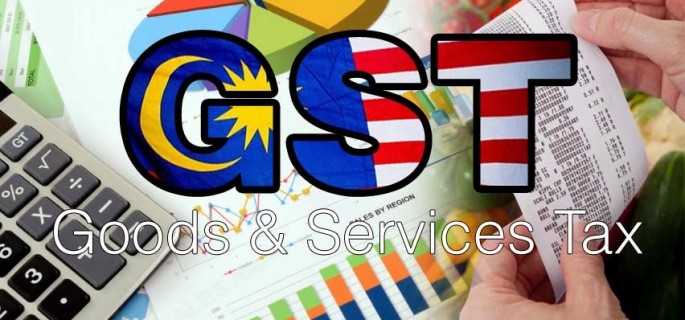Why Singapore GST Registration is Crucial for Your Start-up
Why Singapore GST Registration is Crucial for Your Start-up
Blog Article
Making The Most Of Tax Performance: Professional Tips on Browsing the GST Registration Puzzle for Small Companies
Browsing the elaborate landscape of Goods and Provider Tax (GST) enrollment can be a labyrinthine job for local business intending to optimize their tax effectiveness. Recognizing the qualification requirements, careful documentation requirements, calculated timing considerations, and skilled enrollment procedure pointers can substantially influence a firm's economic standing. Conformity with GST policies is paramount, and adhering to ideal methods can enhance operations and protect against prospective pitfalls. In this conversation, we will discover skilled insights and workable guidance that can encourage little businesses to browse the GST registration puzzle efficiently and maximize their tax efficiency.
Qualification Requirements
Eligibility requirements for Small Company GST Registration include certain standards that organizations have to fulfill to abide with tax obligation laws. To certify for GST enrollment, a business needs to have a yearly turn over surpassing the limit set by the tax obligation authorities, which varies by country.

Paperwork Requirements
The called for documentation commonly includes evidence of organization registration or address, unification and identity evidence of the service proprietor, photographs, bank account details, and proof of the primary area of business. Additionally, services require to give details of their company activities, consisting of the products or services provided.
Apart from the compulsory records, companies may likewise be called for to submit extra information based on their particular situations. This could include files associated with partnerships, the authorization of signatories, or any other pertinent arrangements. Maintaining all needed documents arranged and easily easily accessible can simplify the enrollment procedure and help companies conform with the requirements successfully - Singapore GST Registration. Failing to provide the required paperwork may result in hold-ups or even being rejected of the GST enrollment application. Consequently, meticulous focus to information and adherence to the documentation standards are crucial for a successful GST registration procedure for local business.
Timing Factors To Consider
Thinking about the vital documentation needs have been meticulously addressed, the following vital aspect for small companies getting started on the GST registration procedure is the tactical monitoring of timing factors to consider. Timing plays a pivotal function in GST registration, influencing not just compliance however additionally financial elements of business. Local business require to thoroughly intend the timing of their GST enrollment to maximize benefits and minimize prospective threats.

In addition, companies must straighten the timing of their GST enrollment with their operational readiness. Appropriate prep work, such as upgrading audit systems and training staff, is necessary to perfectly incorporate GST needs right web link into everyday procedures. By strategically handling timing factors to consider, small companies can navigate the GST registration procedure effectively and enhance their tax obligation performance.
Enrollment Process Tips
Efficiently navigating the GST enrollment procedure requires small companies to apply strategic and aggressive enrollment process suggestions. This consists of service registration papers, evidence of address, bank statements, and recognition evidence of the business owners.
Furthermore, understanding the thresholds and demands for GST enrollment based on the particular state or region where business operates is essential. Some states have different turn over limits that set off required registration, so being informed concerning these limits can help services intend ahead.
One more important tip is to take into consideration seeking specialist assistance from accounting professionals or tax specialists that specialize in GST registration. Their competence can streamline the process, lower errors, and make sure conformity with all regulations.
Compliance Best Practices
Browsing the GST enrollment procedure smoothly necessitates not only tactical registration procedure pointers yet additionally important source thorough adherence to conformity finest methods to guarantee ongoing regulative alignment. Local business should prioritize compliance to avoid fines and maintain a good standing with tax obligation authorities. One critical ideal technique is to keep detailed and accurate records of all deals. This includes billings, invoices, and various other monetary documents that may be needed for tax obligation audits or conformity checks. In addition, remaining notified concerning any kind of changes or updates to GST guidelines is important. Small company proprietors must on a regular basis assess government standards and look for expert recommendations if required to ensure they are meeting all demands. It is likewise advised to file GST returns promptly to avoid late costs and penalties. By integrating these conformity best methods right into their operations, small companies can browse the intricacies of GST registration with self-confidence and performance.
Final Thought
Finally, small companies can browse the GST enrollment puzzle by guaranteeing they fulfill qualification standards, collect required documentation, take into consideration timing implications, follow enrollment procedure tips, and abide by compliance best practices. By taking full advantage of tax obligation effectiveness with appropriate GST registration, services can improve their monetary administration and operations.
Navigating the elaborate landscape of Goods and Services Tax (GST) registration can be a labyrinthine task for small businesses aiming to optimize their tax obligation performance.Qualification needs for Small Service GST Enrollment include certain requirements that companies need to satisfy to conform with tax policies. The needed paperwork usually includes proof of company registration or identity, consolidation and address proofs of the business proprietor, pictures, bank Read Full Article account details, and proof of the principal area of organization. Furthermore, services require to offer information of their organization tasks, including the solutions or products provided.Efficiently browsing the GST registration process calls for little organizations to carry out strategic and positive registration process pointers.
Report this page